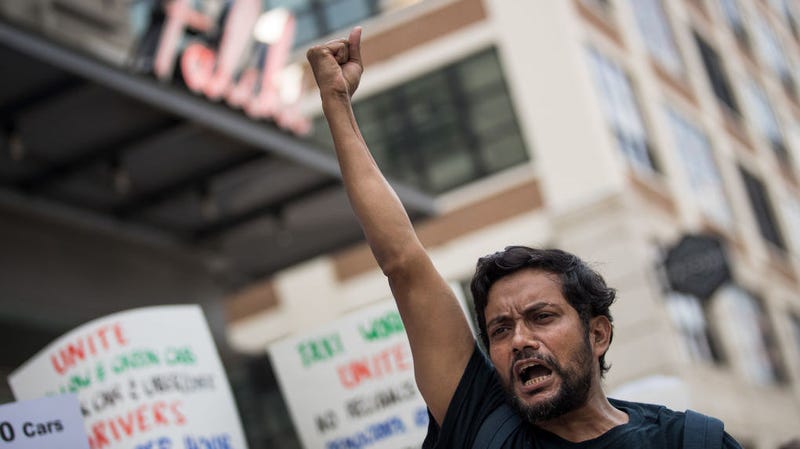 Photo: Drew Angerer (Getty)
Photo: Drew Angerer (Getty)
Today, New York’s City’s Taxi and Limousine Commission approved measures to enact minimum pay requirements for app-based for-hire vehicles (FHV) like Uber, Lyft, and Juno. The new pay structure is set to take effect early in the new year.
The $26.51 per hour gross pay floor (estimated to amount to $17.22 per hour, less expenses) comes after “growing evidence of declining driver pay” was confirmed by a labor study, commissioned by the TLC, which concluded that 85 percent of drivers in NYC were earning less than the local minimum wage of $15 an hour. The new requirements will increase the average driver’s take-home pay by an estimated $9,600 per year.
Advocacy groups like the Independent Driver’s Guild and Amalgamated Transit Union have celebrated the change. “All workers deserve the protection of a fair, livable wage and we are proud to be setting the new bar for contractor workers’ rights in America,” Jim Conigliaro, Jr., founder of IDG, wrote in a press statement. The New York Taxi Workers Alliance wrote that the bill is “the first real attempt anywhere to stop app driver pay cuts, which is an Uber and Lyft business practice at the heart of poverty wages.”
Unsurprisingly, the rideshare companies this bill targets were less sanguine.
Both Lyft and Uber, in statements to Gizmodo, affirmed their belief that drivers should be able to earn a living wage. Uber, however, warned that the bill will “lead to higher than necessary fare increases” while Lyft claimed that “the TLC’s proposed pay rules will undermine competition by allowing certain companies to pay drivers lower wages, and disincentive drivers from giving rides to and from areas outside Manhattan.”
This win for rideshare drivers comes a few months after the NYC City Council agreed to halt new licenses for 12 months in the hopes of capping FHV-caused road congestion.
Share This Story